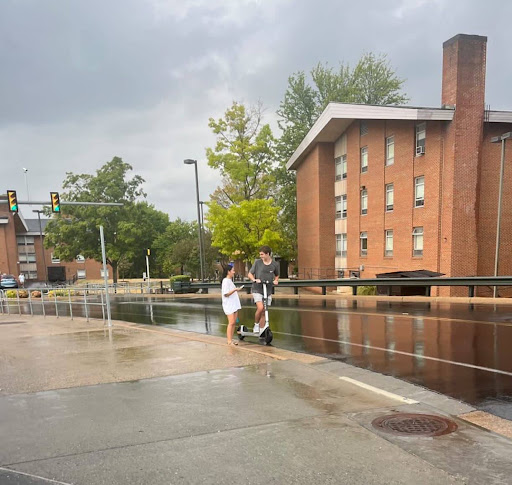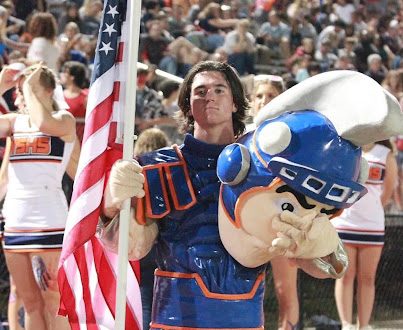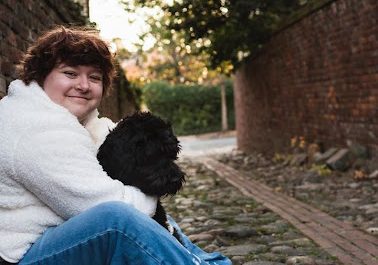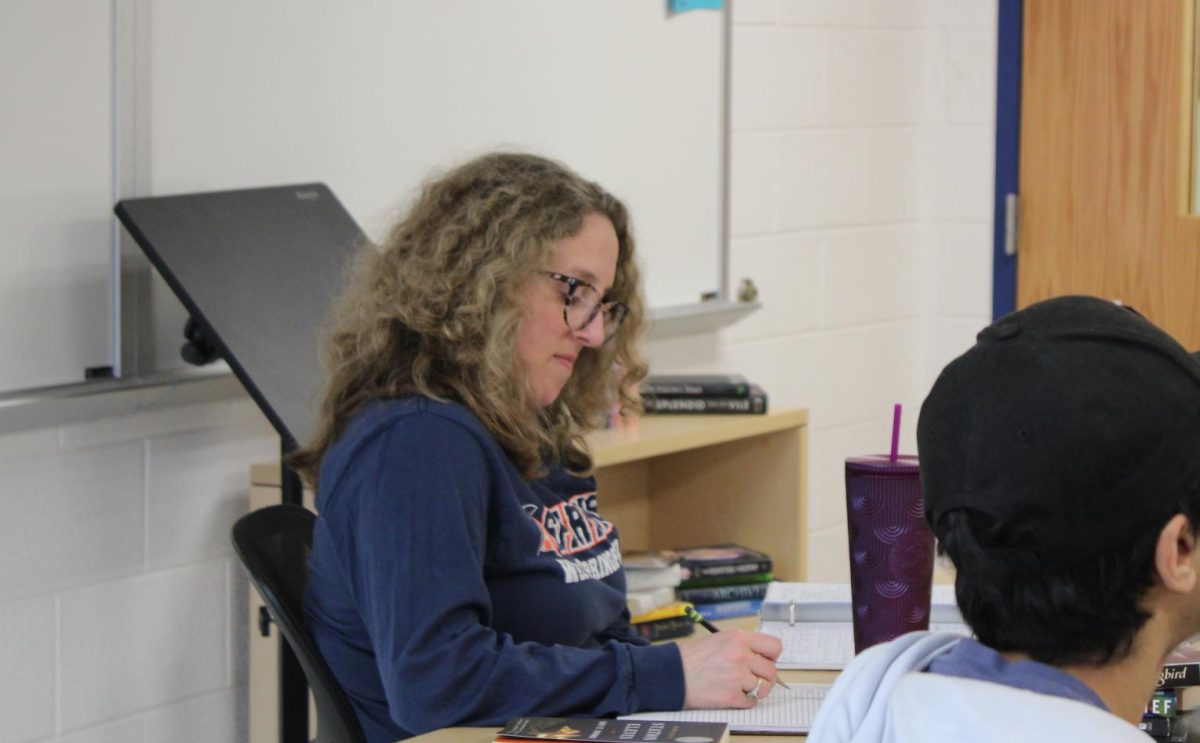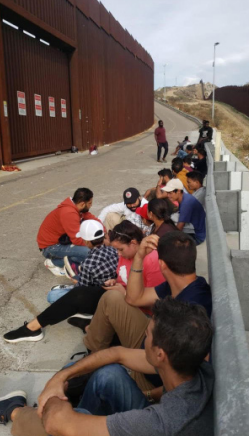
After almost a year spent attending WS, “Samantha,” a pseudonym for a student who is remaining anonymous for her and her family’s safety, reflects on how she made it here in the first place. In August of last year, she made the dangerous journey into the United States, crossing the Mexican-American border, not knowing what lay ahead.
A conflict between political parties in Bolivia infiltrated Samantha’s home life and created a series of tumultuous events that would alter her life forever.
Samantha’s father had a very successful transportation business in Bolivia. The Movement for Socialism – Political Instrument for the Sovereignty of the Peoples (MAS-IPSP) approached him asking to participate in a blockade against another political party. His transport containers were burned in the process. The event caused her family great distress.
“They approached my father to have him participate in another blockade, but he refused, and it was his right to refuse, he wanted to remain neutral. So they broke my father’s head with sticks,” said Samantha.
For safety reasons, Samantha’s family moved to the countryside where her grandparents lived.
They were hiding there. She added that in the countryside everyone insulted her grandmother, because the people in the countryside were “MAS,” members of the MAS-IPSP party.
“They kept on threatening us, they threatened to rob us, to beat us, and they told my father they were going to rape me and my mom,” said Samantha.
Samantha explained that after every incident they went to the police, but the police were aligned with the MAS-IPSP party and did nothing for them.
“We tried to get visas to the U.S. twice and we were denied. It doesn’t seem fair to me because the U.S. always denies people visas; being an immigrant is like committing a crime,” said Samantha.
When a motorcycle drove into another transport container, Samantha’s father decided that they had to leave Bolivia. The trip to the U.S. had to be planned over the course of a couple months.
“The whole school knew me because I had been there since kindergarten, and everyone said goodbye; my teachers, the administrators, everyone,” said Samantha.
The family of five, which included Samantha’s two brothers, ages fourteen and eight, and her mother and father, left Bolivia and arrived in Mexico City where they had to meet with Mexican customs and immigration officials.
“They make you declare what you are doing there and if you say something that doesn’t add up, they’ll deport you,” said Samantha.
The family was able to take advantage of a temporary law that allowed Bolivians to travel to Mexico without a visa.
“My father can’t lie, he’s never been able to, so I spoke for my family. I told them that we were coming for vacation since the school year had just finished,” said Samantha.
They were let through and the next step was meeting up with the “Coyotes,” a term used for people who smuggle immigrants across the Mexican-American border for money. Her father had already contacted the Coyotes in Bolivia and paid a large sum for the entire family.
“My father put himself in a lot of debt with all the expenses, and hopefully one day we can pay them all off,” said Samantha.
Her family encountered five other Bolivians who were making the journey while with the Coyotes. She met a woman who was leaving her daughter behind in Bolivia.
“I always say there is an immigrant who has it worse. My case might be hard, but there are always harder ones,” said Samantha.
In Mexico City, the family staged tourist photos because they had to face immigration again in Tijuana, Mexico and needed proof they were on vacation.
“One of the families that we met in Mexico City was taken by immigration in Tijuana and put in a vehicle with chains on it as if they were dogs,” said Samantha.
After a night spent in Tijuana, Samantha’s family was faced with the day they would cross the wall into the United States. Her father made the decision to stay behind and leave the family separated. He had entered the U.S. illegally nineteen years ago and had left voluntarily, rather than being deported. He feared entering with the rest of his family, as he didn’t want his wife and children to be deported because of his past.
“I told my papi ‘don’t say goodbye to me, just give me a kiss, but don’t say goodbye,’” said Samantha, with tears rolling down her cheeks.
Samantha, her two brothers, and her mother walked an hour to the nearest part of the wall.
“We had to go down a ravine, a horrible ravine. I was so scared [my younger brother] or my mom were going to fall. I held on to them and our things.”
Helicopters were flying over Samantha’s family as they were trying to navigate the wall.
“My mom was crying because she didn’t know how we were going to get my younger brother over. How were we going to carry him over?” said Samantha.
On the Mexican side of the wall there was a ladder; however, there was no ladder on the other side. They would have to jump.
“One person jumped and cracked his head open. There was blood everywhere,” explained Samantha.
Faced with complete uncertainty, Samantha and her mother tried to figure out how they would get her eight year old brother on to the other side. Suddenly, they heard a voice.
“Mommy I did it, I’m on the other side,” said Samantha’s younger brother.
He had gone through the openings of the wall. Samantha’s older brother did the same due to his small figure. The family shared a brief moment of relief.
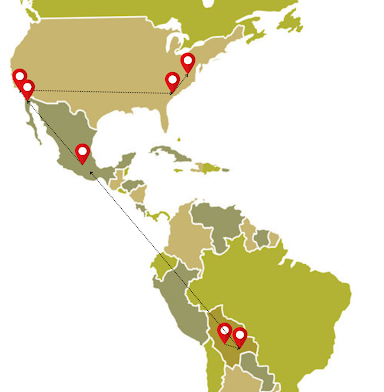
Samantha and her mother made it over. The family waited from 8 a.m. until 5 p.m. to be picked up by U.S. immigration officials. They were dehydrated as they were saving the only water they had for Samantha’s younger brother.
“We were all so pale and my mom was at the brink of collapse,” said Samantha.
At this point, the family had lost contact with Samantha’s father and learned that he had been kidnapped by the Coyotes for ransom. It is not uncommon for the Coyotes to kidnap and rape the immigrants they smuggle.
They were picked up by a U.S. immigration patrol car that asked for their passports. They also made them take off their sweaters, the laces off their shoes, and their jewelry.
“They took us to a jail-like building, they asked me when my last period was, and they took our blood pressure. They didn’t give us water, and we were hungry and thirsty,” said Samantha.
Samantha’s mother believed that the immigration officials were going to keep the family together. However, Samantha and her mother were separated from her younger brothers and put into rooms with their assigned genders.
“My mom started crying and screaming, she was so scared,” said Samantha.
Her brothers were put in another cell where Samantha and her mother could not see them.
“You couldn’t see anything in there, we didn’t know if it was day or night,” explained Samantha.
Samantha adds that the room was completely white and extremely cold. The women in the room were given aluminum foil that served as blankets. To this day, Samantha nor her younger brother can comfortably look at aluminum foil.
“It was like they put us in a refrigerator, so that the room wouldn’t smell. It was so cold and we didn’t have our sweaters. The water they were giving us was also making us sick,” said Samantha.
Samantha felt great sadness as she witnessed the women that had been there for weeks.
“They didn’t let them change their clothes, so women were walking around with large period stains on their pants,” added Samantha.
Her ear against the wall, Samantha’s mother would listen to see if her sons were talking, laughing, or fighting on the other side.
“My younger brother would cry through the wall, telling my mom he was cold and hungry,” added Samantha.
U.S. immigration expedited Samantha’s family’s case because Samantha’s mother had three children with her.
“We were in there for two days, but it felt like an entire month,” said Samantha.
They were let out with papers that stated they were allowed to fly within the U.S. and made their way to a hotel before going to the airport the following morning. They also learned that their father had escaped the Coyotes and was making his way to immigration. He would ultimately be held for 75 days in harsh conditions.
Samantha, her mother, and brothers flew from Southern California to Atlanta, Georgia.
“I tried my first Starbucks drink in Atlanta, it was very exciting,” said Samantha.
From Atlanta, they got on another flight to Ronald Reagan Washington National Airport.
“I had never met my uncle who lived in Virginia, but when I saw him I ran to him and hugged him because he looked just like my dad,” said Samantha.
Samantha and her family have been living in Virginia for almost a year now. The transition has been difficult.
“When you immigrate, you suffer. It’s an unexplainable suffering. You are not given economic support, you have to be careful with everything that you do, and you have to live in hiding so you don’t get deported. Everyone talks about the American dream, but it’s not a dream, you get hit with reality,” said Samantha.
Samantha’s biggest frustration is the slow process of learning English.
“I get angry with myself in regards to my English. I feel despair because I can understand English, but I can’t hold conversations,” explained Samantha.
Samantha is on track to graduate at the end of the 2024-2025 school year. She has been held back so that she may improve her English.
“I know that ultimately it was good that I left my country because of the political conflict, and here I have so many opportunities,” said Samantha.
Samantha wants to get her own job, but is unsure of what to do because employers ask for social security numbers. She wants to study criminal justice and become a detective, or study aviation and become a commercial pilot.
In her free time, Samantha plays soccer and helps her mom with work.
“In Bolivia, soccer is just for boys, everyone is sexist there, the women have to stay at home with their children,” said Samantha. “Our lives have changed a lot because my mom works now and she really enjoys it. There, a woman can never be better or more successful than a man, but that’s not the case here.”
Samantha is focused on getting good grades and hopes to get a soccer scholarship and attend college. She explains that she won’t let her parents’ sacrifices go to waste, and she hopes to make them and her grandparents proud.



